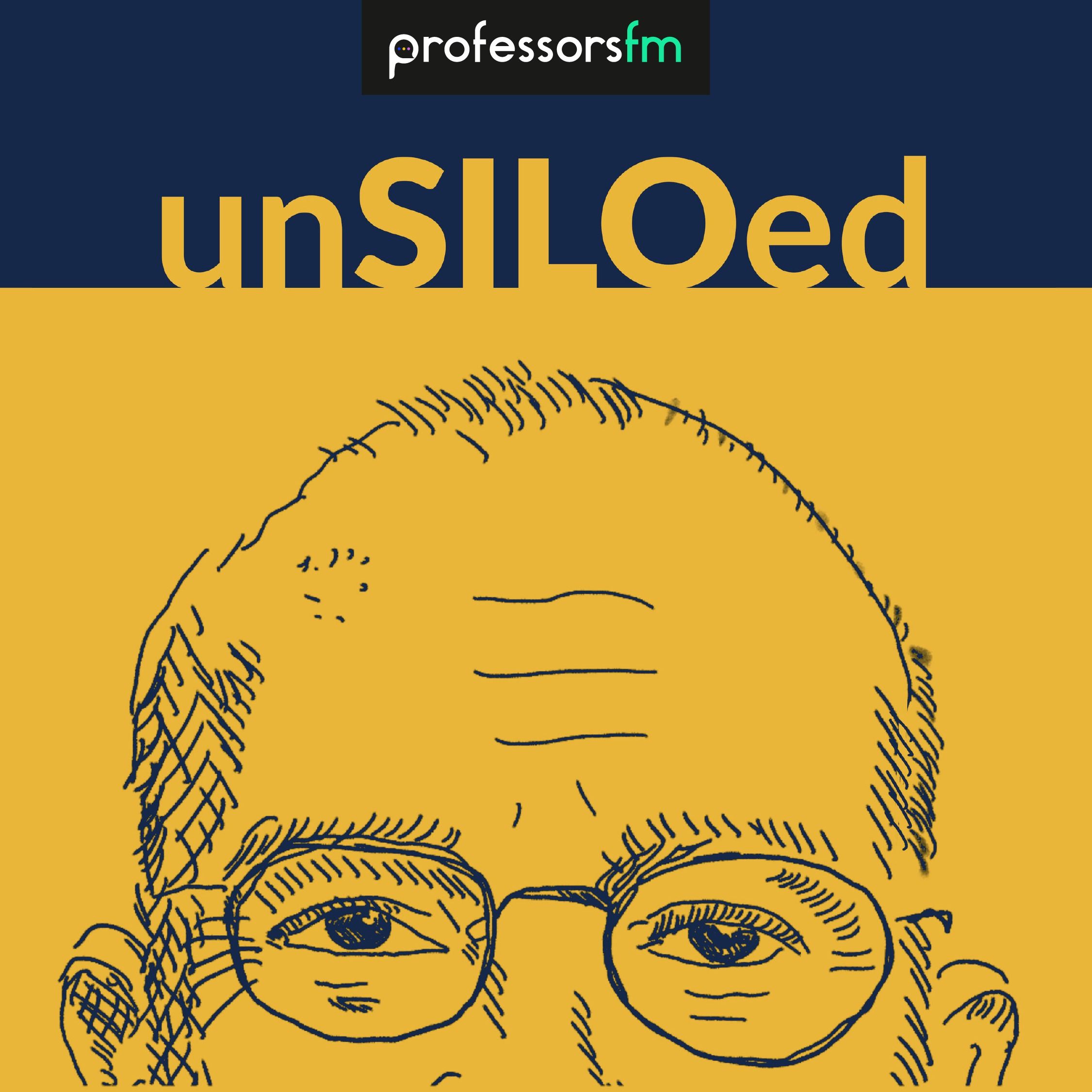

unSILOed with Greg LaBlanc
Greg La Blanc
unSILOed is a series of interdisciplinary conversations that inspire new ways of thinking about our world. Our goal is to build a community of lifelong learners addicted to curiosity and the pursuit of insight about themselves and the world around them.*unSILOed Podcast is produced by University FM.*
Episodes
Mentioned books

Jul 29, 2024 • 58min
446. The Science of Success with Albert-László Barabási
Albert-László Barabási, a network science professor at Northeastern University, dives into the intricate relationship between success and performance. He reveals how communal validation shapes our achievements and discusses the evolution of network science. Barabási challenges stereotypes regarding age and creativity, illustrating that older individuals often make significant contributions. He also highlights the importance of recognizing the 'silent helpers' in academia, emphasizing their unseen yet vital roles in fostering success.

Jul 26, 2024 • 1h 3min
445. How and When To Think Like a Scientist with Saul Perlmutter, John Campbell, and Robert MacCoun
In this enlightening discussion, astrophysicist Saul Perlmutter, philosopher John Campbell, and psychologist Robert MacCoun delve into their book, exploring how to apply scientific thinking to societal issues. They emphasize the importance of separating facts from values, advocate for probabilistic thinking, and discuss the emotional toll on scientists facing challenges to their work. The conversation also touches on the dangers of prioritizing individual genius in tech innovation and highlights the need for collaboration and critical dialogue in community decision-making.

4 snips
Jul 24, 2024 • 59min
444. From Isolation to Connection in Modern Work Environments feat. David Bradford
David Bradford, Senior Lecturer at Stanford Graduate School of Business, discusses building relationships in professional settings. They explore effective communication, conflict resolution, feedback, curiosity in bridging communication gaps, and the importance of vulnerability in leadership.

Jul 22, 2024 • 1h
443. Uncovering COVID-19’s Origin with Alina Chan
Scientific advisor Alina Chan discusses COVID-19's origin, highlighting natural zoonotic transmission and lab leak hypotheses. She explores challenges in identifying virus origins and debates on studying high-risk pathogens. The podcast delves into prior bias in investigations, the role of bats in virus transmission, biosafety level protocols, and the need for transparency in virus research.

Jul 19, 2024 • 50min
442. Enhancing Community and Connection with Rituals feat. Michael Norton
Michael Norton, a Harvard Business School professor, discusses the power of rituals in managing stress and fostering community. He explores the distinctions between rituals, habits, and compulsions, and how companies can use rituals to strengthen unity and core values. Norton also highlights the correlation between shared rituals and relationship success, emphasizing mutual participation.

4 snips
Jul 17, 2024 • 60min
441. Breaking Free From Emotional Habituation with Tali Sharot
Neuroscience professor Tali Sharot and host Greg LaBlanc discuss habituation, optimism bias, and the impact of bad news. They explore breaking free from emotional habits, the human desire for control, escalating dishonesty, and emotional habituation in social change and harmful actions.

Jul 15, 2024 • 1h 5min
440. Whistleblowing in Medical Research with Carl Elliott
Carl Elliott, a philosophy professor, discusses unethical medical experiments and whistleblowers. Topics include protecting vulnerable populations, challenges faced by whistleblowers, the evolution of healthcare perception, and the implications of seeking authenticity through interventions.

15 snips
Jul 12, 2024 • 60min
439. The Psychology Behind Misbelief and Conspiracy Theories feat. Dan Ariely
Dan Ariely, a Professor of Psychology and Behavioral Economics, delves into the psychology behind misbelief and conspiracy theories. He discusses his experience with conspiracy theories during the pandemic, the significance of language as a social marker, and the role of transparency in scientific communication. They explore the impact of misinformation on society and the challenge of discerning facts in a polarized world.

Jul 10, 2024 • 1h 3min
438. Exploring Medicine’s Moral and Ethical Questions with Travis Rieder
Travis Rieder, a bioethics professor, discusses societal attitudes towards opioids, his personal struggle with opioid withdrawal, and the ethical challenges in medicine and climate change. He explores the historical shifts in opioid perception and emphasizes the importance of individual decision-making in addressing structural issues like healthcare and climate change.

8 snips
Jul 8, 2024 • 51min
437. Aligning Data Science and Machine Learning for Business Success feat. Eric Siegel
Eric Siegel, machine learning expert, discusses bridging technical expertise with business needs. He highlights challenges in deploying ML projects, emphasizing collaboration for success. The conversation explores cost analysis, managing buy-in, and utilizing ML for business improvement. Strategies for executives' upskilling are also covered.


